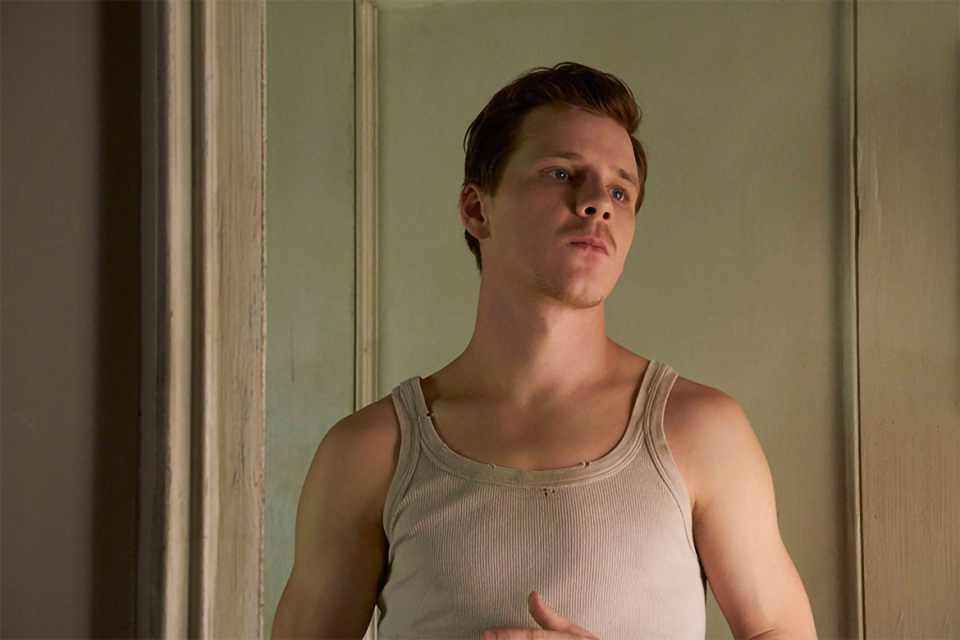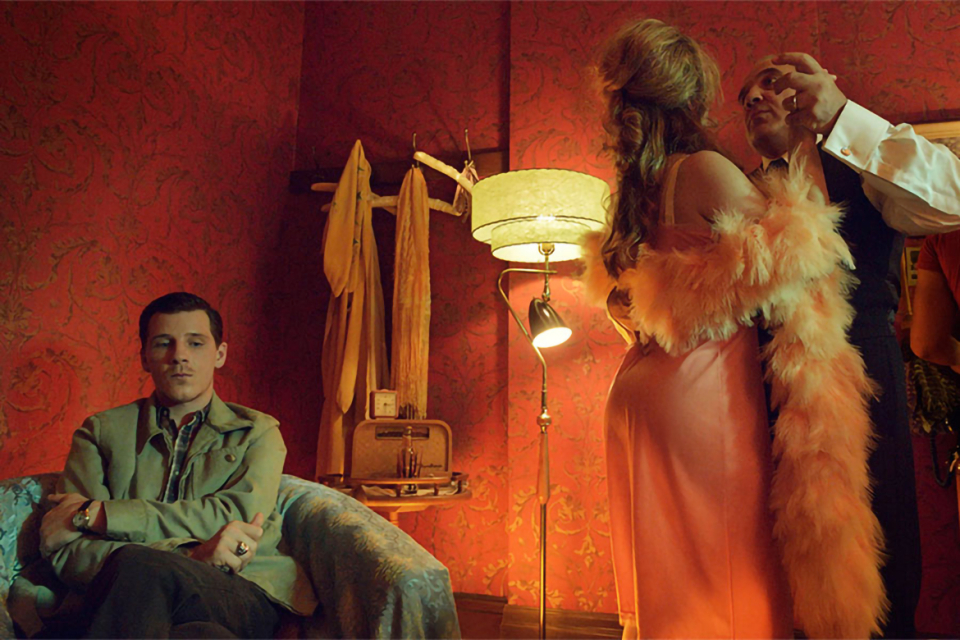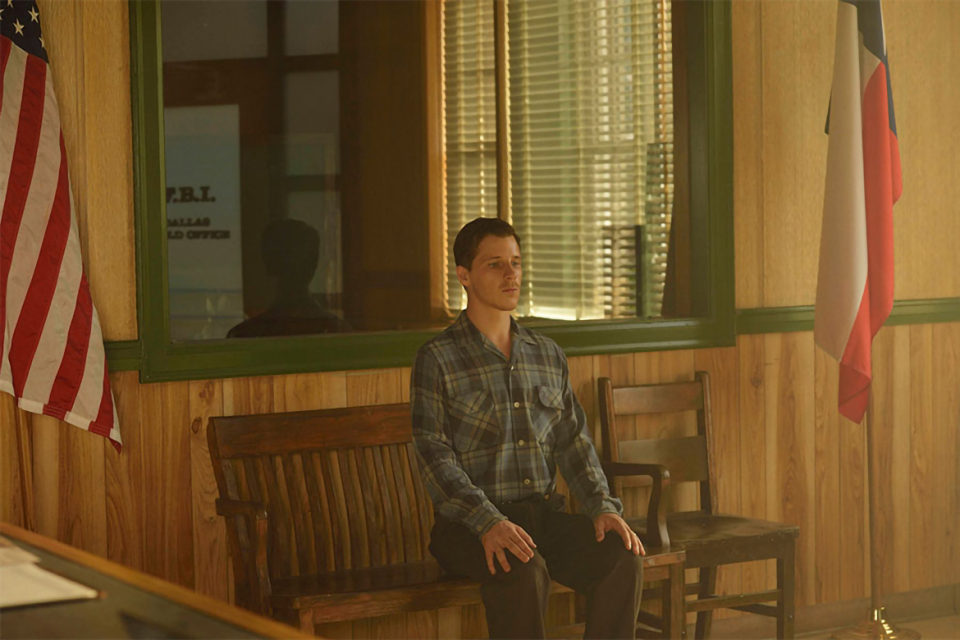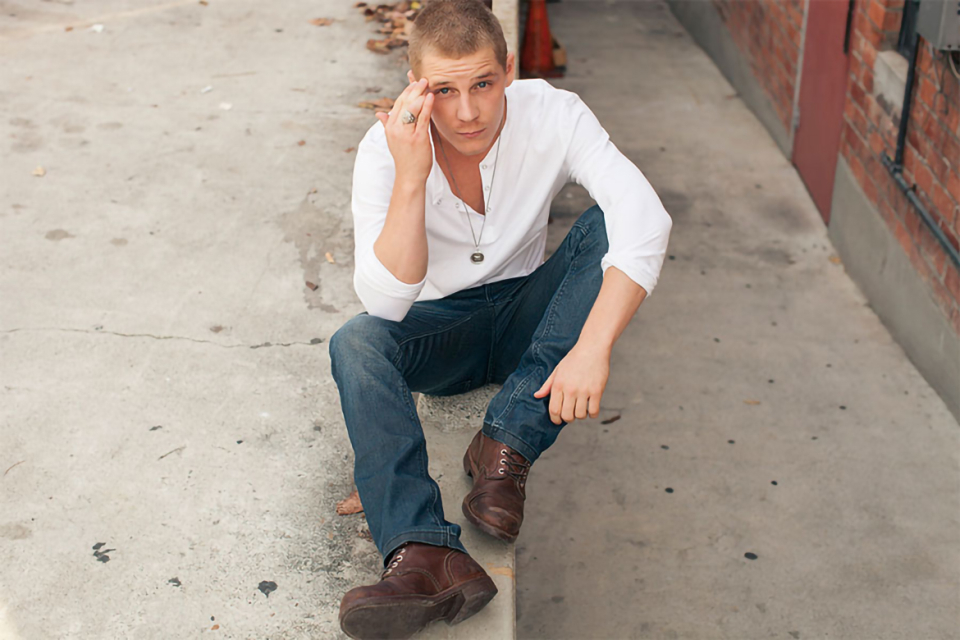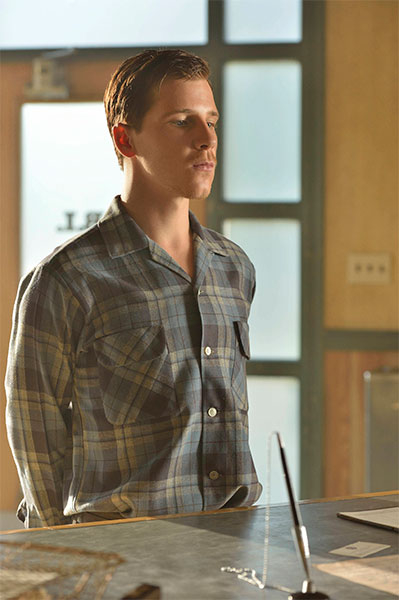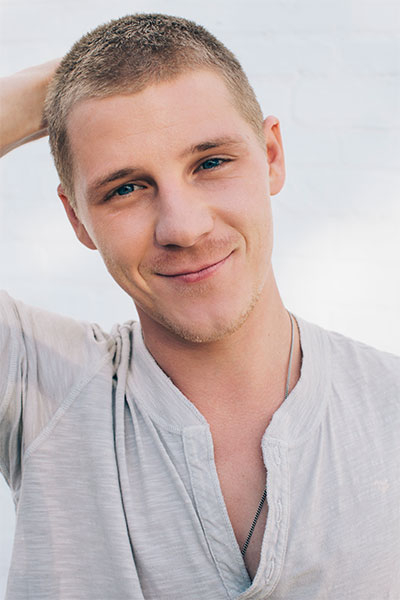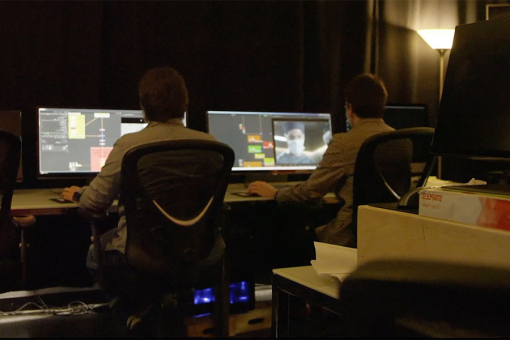Television adaptations of Stephen King novels are nothing new.
The "King of Horror" has a knack for manipulating our curiosity with his storytelling, bringing his often disturbing tales into our living rooms. It, Salem's Lot and The Stand were all big television events.
But 11.22.63 is something different. King's 2011 novel is part thriller, horror, historical fiction, time traveling sci fi, and period piece. The story centers on a modern day school teacher who is sent back in time to prevent the assassination of JFK.
Daniel Webber plays Lee Harvey Oswald in the Hulu original eight-part event series adaptation of King's novel, which premiers Presidents' Day. The series is executive produced by King and J.J. Abrams and stars James Franco, Chris Cooper, Sarah Gordon and Cherry Jones, in addition to the 27-year-old Webber.
With 11.22.63, the Australian actor makes his American breakthrough playing the man who killed America's optimism.
Lee Harvey Oswald is one of the most infamous names in modern history yet he remains evasive.
He was a loner who never got very close even to those around him. He was a former Marine who saw himself as a political activist, a self-described Marxist who defected to the Soviet Union, where he met his Russian bride. He was an outspoken pro-Castro organizer with ties to both the Cuban exile community and the Sicilian organized crime syndicate in New Orleans. He was forever silenced on live television before he could give his accounts of that fateful day.
Webber dug deep in his research. "He's an enigma in the big question – did he do it? – but so much has been written about him from the point of view of his wife and his mother, there's so much information out there." Webber found this journey into Oswald's world fascinating. "He's living this suburban life with all these other lives attached."
Webber credits the series' writers for a solid script from which to start building his character. He read the script and then read King's novel. From there he read every biography he could get his hands on and absorbed accounts of people who knew Oswald, including his wife and mother. He studied the now-iconic films of Oswald for his facial features, mannerisms and speech patterns.
He immersed himself in Oswald's world and, in turn, in the period itself: he watched the same television shows and films Oswald watched. He rode Oswald's subway routes in New York and visited his favorite haunts such as the Bronx Zoo. "I walked in his footsteps a bit. It was a big process," Webber admits. He tried to connect to his character in a tangible way, to "see what he's seen."
This includes the view of Dealey Plaza from the sixth floor of the Texas School Book Depository building in Dallas, Texas. 11.22.63 is part period piece and the art direction captures the rich detail of the period with gritty realism.
The last day of filming was shot in Dealey Plaza in full period set and costume. It was a powerful feeling, "eerie and slightly uncomfortable." Although, for Webber, shooting inside Oswald's actual home was even more affecting. "You spend months working on a character and then you're in this special place where he lived. It was a very emotional day."
There have been many portrayals of Lee Harvey Oswald in film and television. Two that resonated with Webber in particular were Jeremy Strong in Parkland and Gary Oldman in JFK. "Oldman is brilliant," confesses Webber, "It's a bit intimidating."
Webber tried to fuse different aspects of Oswald's character he picked up from these portrayals, but ultimately his Oswald came down to the material. "They didn't tell the same story we told."
Coming from a different generation and a different country, the impact of the JFK assassination on a personal level may not have been intrinsically understood, but its greater impact on the American psyche was not lost on the actor. "It's on the scale of 9/11, and us younger cast members had that understanding."
There were no actors where Webber grew up among the blue-collar tradesmen and beautiful beaches of Gosford, New South Wales. He discovered acting in school and it suited him. A trained acrobat, he toured the Middle East in what was essentially a traveling circus and serviced wind turbines, suspended several hundred feet above the sprawling Australian landscape.
Still, Webber was determined to pursue acting, despite the fact that there was simply no industry where he lived. "There was no way into the acting world from Gosford."
He spent hours searching for calls online. One day he saw a casting call in the newspaper and went in to the audition cold. Webber stood out from the 30 other young hopefuls in the room. There was something in the way he carried himself. His real world experience belied his age and lent a quality that appealed to the director. He got the part.
His international breakout role came with K9, a spinoff of the time traveling cult show Doctor Who. Interestingly, the original Doctor Who premiere was overshadowed by the tragedy in Dallas when it aired on November 23, 1963.
Time travel is more a plot device – what Hitchcock called a MacGuffin - than a central theme of 11.22.63. But it introduces themes as big as the events themselves. The earliest time travel fiction cautioned us against the dangers of the "butterfly effect." As Chris Cooper's character says, "the past doesn't want to be changed."
Daniel Webber doesn't entertain any particular conspiracy theories surrounding JFK. His focus was on Oswald the person who he believes, based on all we know of the man, was "certainly very capable of doing it." For all the myth and conjecture that has grown out of that day on November 22, 1963, Webber's task was to get inside the character as best he could and to attempt to humanize him. Lee Harvey Oswald has become larger than life. "But," as Webber points out, "he was just a man."
Webber's portrayal of Oswald has garnered him universally glowing reviews. For now, the actor is fielding offers and assessing his next move.
With Lee Harvey Oswald, Webber tackled one of the most important and illusive figures in modern history. When it comes to future dream roles, he thinks equally big. He would love to play Hamlet as well as Steve McQueen in a biopic of the late actor and icon of effortlessly cool masculinity.
For more on Hulu's 11.22.63, see "Time Reprised" online and in emmy magazine.

